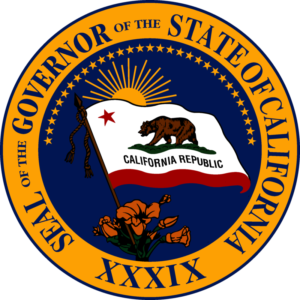Keep Up-to-Date on Neurodiagnostic Legislative Issues in California
We would like to call your attention to the features of the Neurodiagnostic Legislative & Regulatory Action Center. The center is sponsored by a coalition comprised of ASET – The Neurodiagnostic Society, the American Society of Neurophysiological Monitoring (ASNM), and the Board of Registered Polysomnographic Technologists (BRPT). It is maintained by a Joint Governmental Advocacy Committee comprised of ASET, ASNM, and BRPT representatives. Updated legislative and regulatory data of direct interest to the neurodiagnostic profession and your right to practice are posted on the site. Easy online tools that allow you to have an active and timely role in our efforts to advocate for the profession are part of the site.
 Some of the features of the Neurodiagnostic Legislative & Regulatory Action Center are:
Some of the features of the Neurodiagnostic Legislative & Regulatory Action Center are:
- Take Action on Important Issues! We will post action alerts on the site that encourage you to send personalized messages to your state legislators to support ASET’s position on particular legislation that affects neurodiagnostic technologists right to practice. The suggested email messaging will already have been prepared. If you live in the state where there is an action alert, all you need do is enter your zip code and hit send. The message will automatically be delivered to your state representative and/or state senator.
- View Key Legislation. We will post information bulletins on legislation, rules and regulations so you can stay informed on what is happening in your state or at the Federal level on matters relating to neurodiagnostics.
- Find Your Elected Officials. Click on your state or enter your zip code to learn who your elected officials are. From there you can see each legislator’s bio page. Each bio page includes direct links to contact information, key votes and bills, and staff information.
- Send Letters to the Editor. The Center’s Media Guide allows you to send letters to the editors of local newspapers and magazines.
Capital Hill Basics. This primer provides you with tips on communicating with elected officials, visiting your state capitol, and meeting with legislative members and staff. It also describes step-by-step the legislative process. While the primer is written at the Congressional level, much of what is provided is similarly applicable to state houses of government. - Action E-List. Join our Action E-List and receive important updates regarding the issues we are tracking and how you can speak out on matters impacting the neurodiagnostic profession. Note: If you are an ASET member, or if you have completed the Neurodiagnostic Census form, you may have already been signed in to the Action Network. To verify if you are already signed up, please visit the Action Network page, enter your email address in the box under Subscription Management and click “Go.” You will receive an email notice to access your account and update your contact information. You may cancel your Action Network listing at any time by sending an e-mail with the word “unsubscribe” in the subject line.
The most effective way of influencing legislation or to ensure our collective voice is heard on important issues is for you to communicate your views directly to your respective elected officials. Sending e-mails to elected officials is an activity which increases the likelihood that attention will be paid to the message being delivered because constituents play such an important role in election outcomes through the power of the vote. State and congressional offices track the number of communications received on a daily basis on an issue. With the tools and features available through our Neurodiagnostic Legislative & Regulatory Action Center, it has never been easier to have your voice heard and to make a big difference in protecting the scope of practice for neurodiagnostics.
When you receive an Action Alert notice please take action immediately. The legislative process is time sensitive, at times legislation can move very rapidly. It only takes a few minutes and will help legislators understand our concerns with the legislation they will be voting on.
